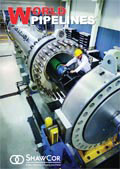Editorial comment
Statoil has received a deepwater drilling permit for a new well in the Gulf of Mexico, 200 miles off the coast of Texas. This is the sixth such permit granted by the Bureau of Ocean Energy Management, Regulation and Enforcement (BOEMRE) since the BP oil spill last year. In the wake of the Macondo tragedy, President Obama announced a six month moratorium on new deepwater drilling in the Gulf in 500 ft of water or more, effectively shutting down this part of the industry until the safety of such offshore operations could be verified. Since this six month ban, permits are now approved only where companies comply with the new safety drilling regulations imposed by the department and where they can satisfy officials that a blowout at an underwater well can be contained.
Register for free »
Get started now for absolutely FREE, no credit card required.
It is important that the lessons learned from the Deepwater Horizon disaster are fed back into the industry, so that any new permit applications are judged carefully in the light of knowledge gained from the explosion and resulting spill.
Late last year, the Bureau published a rulemaking that requires all offshore operators to have a safety and environmental management system in place. This requirement, called SEMS, allows companies to create their own safety management plan, providing they cover 13 different areas, including things such as hazards analysis, safe work practices, training and recordkeeping. Plans must be in place for a very tight deadline of 15th November this year, which means operators and, consequently, contractors, will have their work cut out for the next six or seven months as they try to come in line with the new rules.
The Bureau estimates that the initiative will cost operators some US$ 92 million, although the cost to contractors hasn’t yet been estimated. Offshore contractors will need to ensure that all personnel are trained in any new work practices, as well as adapt to new programmes and systems according to the operator for which they are working.
This is what Professor Andrew M. Isaacs of the University of California, Berkeley calls ‘the new normal’.1 He argues that “in the new normal, our options for the future are different than what they were previously, and the tools that worked before are not quite what we need now.” In the storm of the Deepwater Horizon tragedy, all minds were focused on the imperatives of a dangerous and uncertain environment, but when the storm blows away, we find we emerge in a different place than where we entered. Whilst the causes of the Macondo disaster are still being investigated, it is clear that regulation of deepwater drilling will become ever stricter and more thorough from now onwards. Adapting to, and coping with, this new normal is now the challenge.
A new API institute, a Houston-based Center for Offshore Safety, is to be launched to promote safety in offshore operations through a programme that addresses management practices, communication and teamwork. The institute will be subject to independent auditing and verification and will stand separately from API’s trade lobbying work. A common approach to elements of the SEMS would be an effective way for contractors to handle the new requirements, so perhaps this new institute would go some way to bolster industry’s efforts in safety and environmental areas.
This issue of World Pipelines includes a regional report on the Gulf of Mexico, in which Gordon Cope offers a broad look at how the Macondo tragedy has affected offshore operations in the Gulf. This month we also present our annual Offshore Technology Review comprising individual reports from companies who are working offshore right now, in the Gulf of Mexico and all over the world. Read on for insight into working offshore in 2011, and how companies are forging ahead in the ‘new normal’.
1. ISAACS, Andrew, M., ‘The new normal’, Forum, a magazine from DNV, Issue 01, 2011.


